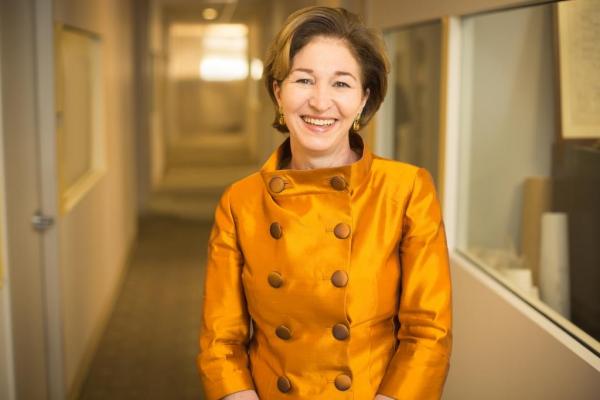Please join us as we celebrate the dedication of Weiser Hall with a dedication/ribbon cutting followed by the Weiser Hall Inaugural Lecture with Anne-Marie Slaughter.
DEDICATION & RIBBON CUTTING:
3:00pm on the grand staircase, first floor, Weiser Hall
LECTURE:
4:00pm, 1010 Weiser Hall
BOOK SIGNING & RECEPTION
5:30pm, 1010 Weiser Hall
As our inaugural speaker, Dr. Anne-Marie Slaughter's talk will examine geopolitical risk and analysis.
Dr. Slaughter served as Director of Policy Planning for the U.S. Department of State from 2009-2011, and was the first woman to hold the position. She is a former Dean of Princeton University's Woodrow Wilson School of Public and International Affairs, and the former J. Sinclair Armstrong Professor of International, Foreign, and Comparative Law at Harvard Law School. Dr. Slaughter is the author or editor of eight books, including her most recent, "The Chessboard and the Web: Strategies of Connection in a Dangerous World." Her 2012 article in The Atlantic, "Why Women Still Can't Have It All," was the most-read article in the magazine's history and helped create a national conversation on gender equality.
DEDICATION & RIBBON CUTTING:
3:00pm on the grand staircase, first floor, Weiser Hall
LECTURE:
4:00pm, 1010 Weiser Hall
BOOK SIGNING & RECEPTION
5:30pm, 1010 Weiser Hall
As our inaugural speaker, Dr. Anne-Marie Slaughter's talk will examine geopolitical risk and analysis.
Dr. Slaughter served as Director of Policy Planning for the U.S. Department of State from 2009-2011, and was the first woman to hold the position. She is a former Dean of Princeton University's Woodrow Wilson School of Public and International Affairs, and the former J. Sinclair Armstrong Professor of International, Foreign, and Comparative Law at Harvard Law School. Dr. Slaughter is the author or editor of eight books, including her most recent, "The Chessboard and the Web: Strategies of Connection in a Dangerous World." Her 2012 article in The Atlantic, "Why Women Still Can't Have It All," was the most-read article in the magazine's history and helped create a national conversation on gender equality.


